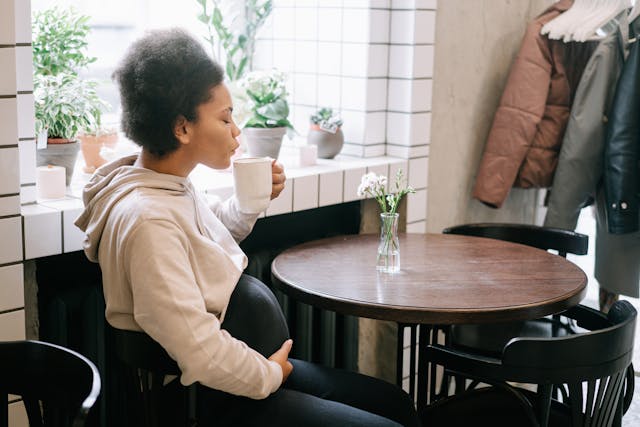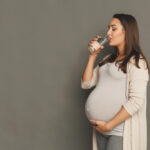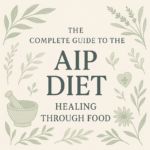
How to Quit Coffee While Pregnant (Without Feeling Miserable)

Quick Summary / Key Takeaways
- Quitting coffee during pregnancy is safe but can cause withdrawal if not done carefully.
- Hormonal shifts make your body more sensitive to caffeine’s effects.
- Gradual tapering reduces headaches, fatigue, and mood swings.
- Safe energy alternatives like Sip Herbals, rooibos, and maca can help.
- Supportive habits like hydration, sleep, and blood sugar balance make a huge difference.
Stats Snapshot & Comparison Tables
| Factor | Regular Coffee | Decaf Coffee | Sip Herbals |
|---|---|---|---|
| Caffeine | 80–100 mg | 2–5 mg | 0 mg |
| Acidity (pH) | ~4.5 | ~5.0 | ~6.5 |
| Pregnancy-Safe | ⚠️ Limited | ⚠️ Trace caffeine | ✅ Yes |
| Energy Source | Caffeine | Trace caffeine | Adaptogens, minerals |
Simple Swaps & Extra Tips
Coffee Quitting Checklist:
- ✅ Reduce caffeine by 25–50% per week
- ✅ Replace one cup at a time with a caffeine-free option
- ✅ Sip warm drinks at your usual coffee time (habit replacement!)
- ✅ Stay hydrated (dehydration = worse withdrawal)
- ✅ Prioritize sleep and meals with protein + fat
Easy Alternatives to Try:
- Sip Herbals blends (caffeine-free, pregnancy-safe)
- Warm lemon water with ginger
- Rooibos tea (naturally caffeine-free)
- Herbal lattes (maca, dandelion root, etc.)
Introduction: Why Quitting Coffee Feels So Hard — and How to Do It Anyway
If you’re pregnant and clutching your morning coffee with white-knuckled determination, you’re not alone. For many of us, coffee isn’t just a drink — it’s a ritual, a lifeline, a personality trait. But when you’re expecting, your relationship with caffeine suddenly gets complicated.
Pregnancy increases your sensitivity to caffeine and slows how your body metabolizes it. That means the same cup that once made you feel focused now makes you jittery, nauseous, or wide awake at 2 a.m. Doctors generally recommend limiting caffeine intake to 200 mg per day — about one 12 oz cup of coffee. But for people trying to play it safe or eliminate caffeine altogether, quitting coffee can feel like losing a part of yourself.
The good news: There are ways to quit without feeling like a zombie. This guide walks you through how to transition off coffee while pregnant — gently, safely, and without losing your mind (or your soul).
Table of Contents
1. Will I feel tired all pregnancy if I quit coffee?
Direct Answer: Not necessarily. Tiredness is common in early pregnancy, but quitting caffeine doesn’t doom you to nine months of exhaustion.
Depth: Fatigue during pregnancy is caused by hormonal shifts, increased blood volume, and nutrient demands — not just caffeine withdrawal. Many women report that their energy stabilizes after the first trimester.
Real Results: Swapping coffee for mineral-rich drinks like Sip Herbals, bone broth, or coconut water often improves energy after an initial dip.
Takeaway: The fatigue is real — but it’s temporary, and often manageable with better hydration, blood sugar balance, and rest.
2. Can I just switch to decaf?
Direct Answer: Decaf is lower in caffeine but not completely caffeine-free.
Depth: Most decaf coffees contain 2–5 mg of caffeine per cup. While that’s much lower than regular coffee, it still counts toward the 200 mg daily limit. Some decaf processes also use solvents that you may want to avoid during pregnancy.
Real Results: Many women use decaf to taper off, but eventually switch to fully caffeine-free options for peace of mind.
Takeaway: Decaf can help with the transition — just don’t assume it’s completely free of caffeine.
3. What are pregnancy-safe coffee alternatives?
Direct Answer: Herbal coffee substitutes like Sip Herbals, roasted dandelion, or chicory blends are great caffeine-free options.
Depth: Look for brands that are 100% caffeine-free, low-acid, and don’t include stimulants like cacao or guarana. Sip Herbals uses roasted chicory, carob, and dandelion root — all generally considered safe in moderate amounts.
Real Results: Many pregnant customers report that Sip Herbals satisfies their craving for the coffee ritual without the crash, jitters, or nausea.
Takeaway: You don’t have to give up the comfort of a warm, bold drink — you just need the right substitute.
4. Why do I feel so emotional after quitting coffee?
Direct Answer: Caffeine affects mood, focus, and dopamine levels — so withdrawal can absolutely feel emotional.
Depth: It’s not “just in your head.” Caffeine stimulates your central nervous system, so coming off it can trigger sadness, anxiety, or irritability. Add in pregnancy hormones, and it’s a potent mix.
Real Results: Many women report crying spells or mood swings during withdrawal that ease after a week or two.
Takeaway: Your brain is recalibrating. Be gentle with yourself and support your body with rest, hydration, and good food.
5. Where to Learn More
Direct Answer: Visit Sip Herbals to explore safe, caffeine-free blends and more resources on pregnancy wellness.
Depth: We’re continually updating our blog with evidence-based guides, tips from herbalists, and stories from the community.
Real Results: Thousands of pregnant and postpartum customers use Sip to navigate caffeine-free living — and we hear their stories daily.
Takeaway: “Click here” to return to the Sip Herbals homepage and learn more.
6. Is quitting coffee cold turkey safe during pregnancy?
Direct Answer: Usually yes, but it depends on your baseline caffeine intake.
Depth: If you were drinking large amounts of caffeine daily, quitting suddenly can cause severe headaches, fatigue, and mood swings. That can compound pregnancy fatigue and nausea.
Real Results: Many OBs recommend tapering by reducing 25–50% per week.
Takeaway: Gradual tapering is usually easier on both your body and your mood.
7. How long do caffeine withdrawal symptoms last?
Direct Answer: Most people feel the worst for 2–5 days, with lingering fatigue up to 1–2 weeks.
Depth: Symptoms can include headaches, irritability, brain fog, low mood, and intense cravings. They tend to peak around day 2 or 3.
Real Results: Staying hydrated, well-fed, and well-rested makes a noticeable difference.
Takeaway: You’ll feel better soon. Ride it out, and know it’s temporary.
8. Can herbal coffee trigger nausea or food aversions?
Direct Answer: It can, but usually only in early pregnancy or if ingredients are too bitter.
Depth: Pregnancy changes your sense of smell and taste. Even familiar flavors can suddenly be repulsive. That said, most roasted herbal blends are gentler than regular coffee.
Real Results: Customers report better tolerance when they use lighter blends, or mix in coconut milk or maple syrup.
Takeaway: Start with small amounts, and tweak flavor/temperature to match your shifting preferences.
9. What if I already quit and feel awful—should I go back to drinking coffee?
Direct Answer: Not necessarily. If you’re struggling, it’s worth reviewing your hydration, nutrition, and sleep before reaching for caffeine again.
Depth: Withdrawal can feel rough, but it’s usually short-lived. Going back to caffeine might provide quick relief, but it also resets the withdrawal clock.
Real Results: Many people feel dramatically better within a week just by tweaking other wellness habits.
Takeaway: Before you go back, try more water, mineral-rich drinks, protein, and early bedtimes.
10. Does caffeine affect fertility too, or just pregnancy?
Direct Answer: Some research suggests high caffeine intake may reduce fertility in women.
Depth: Studies show mixed results, but several link 300+ mg/day caffeine to longer time to conception. Caffeine may impact hormone balance and blood flow to reproductive organs.
Real Results: Many fertility specialists recommend limiting to <200 mg/day while trying to conceive.
Takeaway: Cutting caffeine may help even before you’re pregnant — and it won’t hurt.
Author Bio
Written by Orleatha Smith, Certified Master Herbalist
Orleatha Smith is a Certified Master Herbalist and co-founder of Sip Herbals, a revolutionary coffee alternative designed to deliver sustainable energy without the crash. With a background in biology and an advanced degree in education, Orleatha has spent more than a decade in the wellness community, helping people explore natural approaches to health. Her expertise has been featured on Shark Tank, First For Women Magazine, The Los Angeles Times, WebMD, and on numerous podcasts and television programs.








